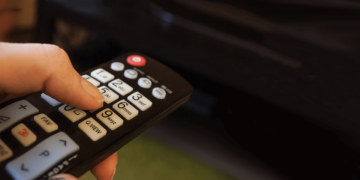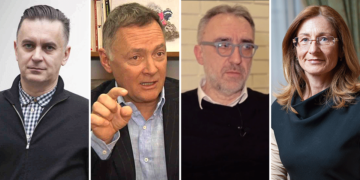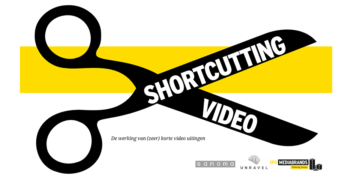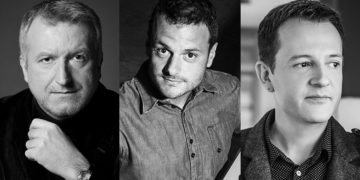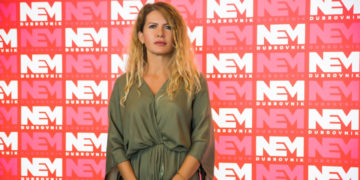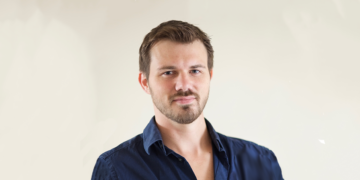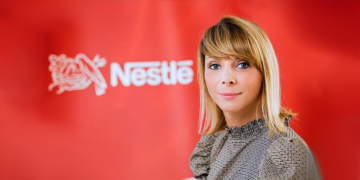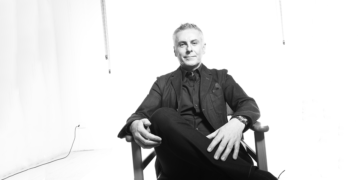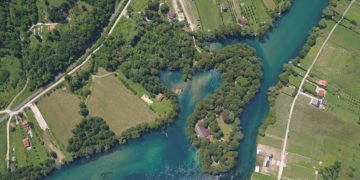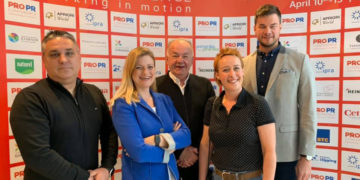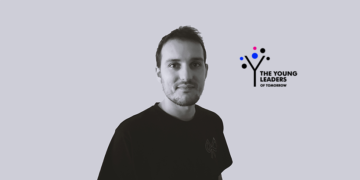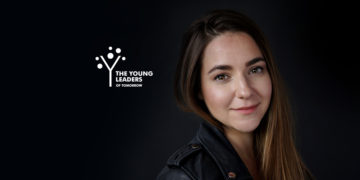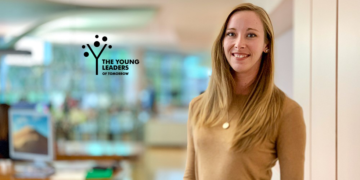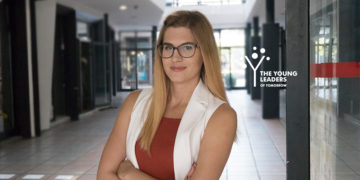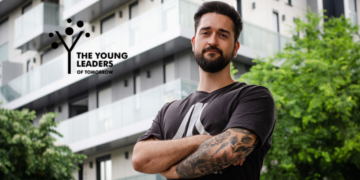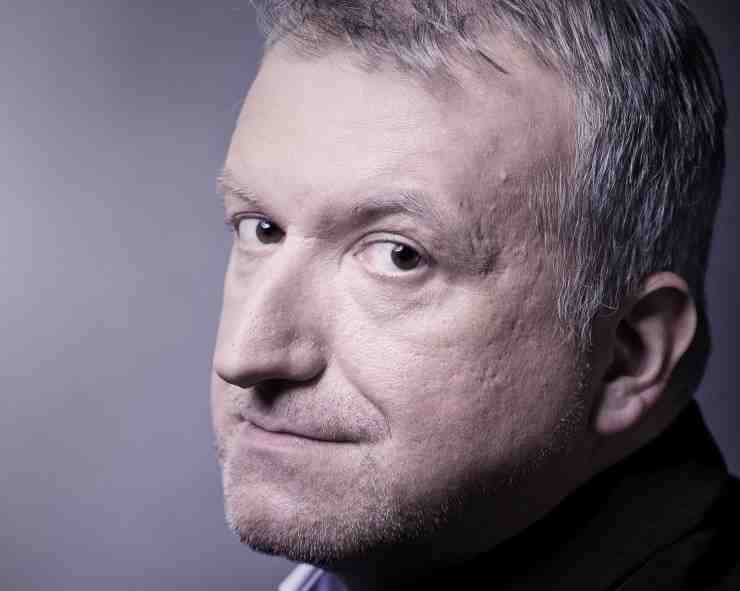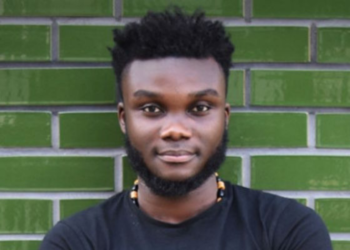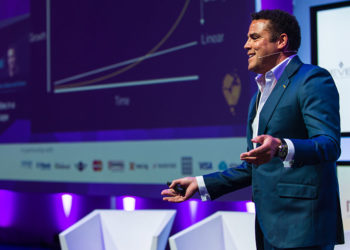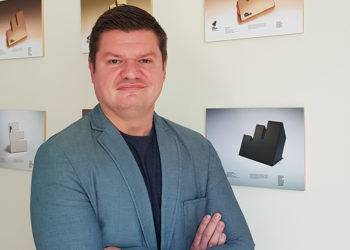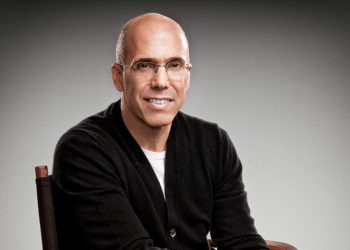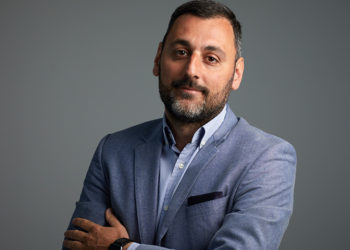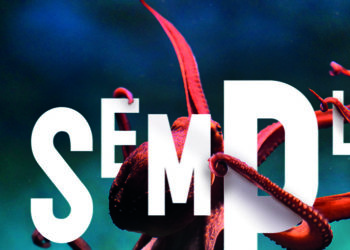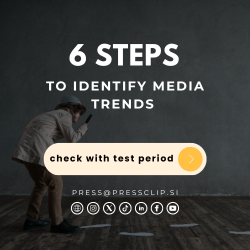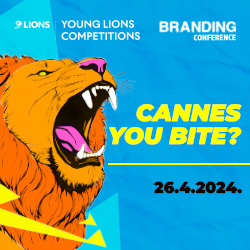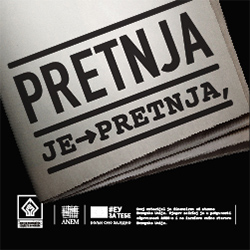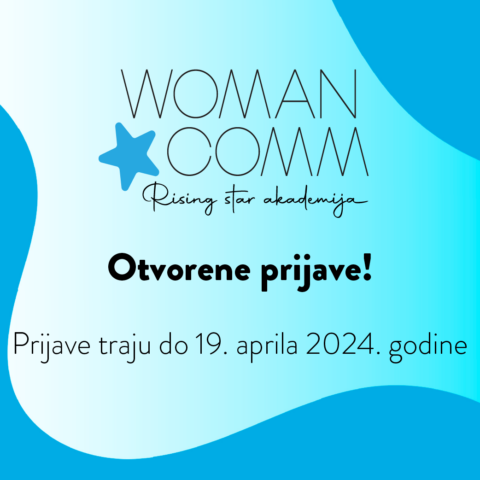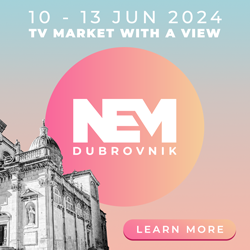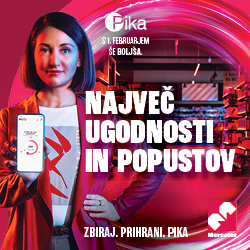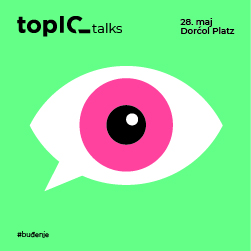Drugi jezik na kojem je dostupan ovaj članak: Bosnian
By: Ekrem Dupanović
Janez Rakušček, executive creative director of the Slovenian agency Luna \TBWA has always been one of the most interesting of all the creative directors I’ve ever met. He is very knowledgeable. His interests go well beyond advertising. In high school he was into math, his family expected him to study medicine, but he opted for the Academy for Theatre, Radio, Film and Television in Ljubljana, the department of dramaturgy. Today he likes to read philosophical literature, which can be seen in the columns that he regularly writes for us. Janez is a man who is simply captivating, with his openness and his broad perspective on the world around him.
Media Marketing: What made you opt to work in advertising?
Janez Rakušček: I was attracted by advertisements as early as high school. With my father’s old East German Pentax 8 camera from the sixties (it was mechanical and worked by winding) I made short films with friends. At the academy I plunged seriously into art, writing scripts for movies and dramas. For one of them – a dramatization of the novel of the cult Slovenian author Vladimir Bartol, Don Lorenzo – I received the student Prešeren Award.
Media Marketing: Your first job?
Janez Rakušček: I still vividly remember my entry into the world of advertising. It was the summer of 1989, around midnight. At a famous cafe on the bank of the Ljubljanica, a colleague a few years older than me – director Mitja Milavec, who is today, together with \TBWA, co-owner of the agency Luna\TBWA and vice president of \TBWA for the Adriatic region – asked me if I would like to try to write a script for a commercial. “Of course I would,” I replied. And that was it. At that moment, without knowing it, I had made my life choice. The script was written, the ad was filmed. It was the first ad by the renowned film director Miha Hočevar, with whom I studied at the Academy. Client: Alhos Konfekcija Sarajevo which, like so many others, no longer exists.
So it began.
Media Marketing: Your first campaign?
Janez Rakušček: Mitja invited me to an agency called Magenta, which had just gained a very important client, Renault. Back then Renault was entering the Yugoslav market in earnest. It had strengthened its sales and service network and started producing the legendary “Five” in Novo Mesto. It also tackled communications, with major campaigns for Renault 4 and Renault 5, the conventional sales networks, presentations for journalists, the opening of salons across Yugoslavia … and I helped with all of that. I was writer, screenwriter, account manager, organizer, printer… in short, anything that was needed at any given moment – and it was an incredibly useful life experience. Some large multinationals have the practice of sending young staff around the various departments, just like interns in hospitals. I got all this experience by chance, out of necessity. Today I’m glad that I did.
Mitja then formed his own agency, Luna, and I went with him. After a few years I felt the need for a change, so I moved to Jernej Repovš’s legendary Studio Marketing. From Jernej I also learned a lot. First of all, I met people there who are my friends to this day: Janko Hočevar was the head of Studio Marketing’s strategic research department, now he owns the research agency Aragon, and is the person whose advice I most highly I respect; Ermin Međedović is a designer and brilliant typographer, today art editor of the largest Slovenian newspaper Delo. I stayed in Studio Marketing for eight years and then I returned to Luna as executive creative director. Soon it became Luna \ TBWA. In the meantime, I got married and had two great kids, Katarina and Max; I owe a debt of gratitude to my wife Mojca for pulling me out of the stuff and nonsense that I got into here and there.
Working in advertising is no longer as “in” as it was in the nineties, but – believe me – it’s still one of the best things you can do in life
Media Marketing: The awards you’ve won so far, and how important are they for you?
Janez Rakušček: Advertising awards are an ambiguous thing. I read somewhere (or someone told me) that the advertising business has by far the most festivals and most awards, which people from the advertising industry give to one another, and this very fact demonstrates that we go out of our way to try to prove that our work is valuable. It’s as if we constantly doubt ourselves, and therefore we look for confirmation that what we have made is actually good. It’s as if somewhere inside we are nervously self-critical and uncertain. “Most advertising is just crap.” This is something you often hear from ad creatives. You know what? There is also evidence that the vast majority of literature is just crap, and that the vast majority of music and the vast majority of scientific research are pure garbage. This is the statistic: Two to three percent of what is created, regardless of the field, has, at the least, some value.
But let’s get back to the awards: at the beginning of my professional life I was of course immensely happy to get each award – and I take pleasure in them even today, although I no longer perceive them as an absolute measure of the quality of the communication work. Each award is, in fact, subjective, no matter how many jury members there are. It’s still an expression of the subjective opinions of a small group of people. In addition, modern communications has been infiltrated by the dangerous, potentially suicidal practice of creating ads for the awards. Here and there someone puts on the brakes and issues a warning about the absurdity of such a practice, which is the reason the entries in festival screenings seem to exist on another planet, not here on earth, among the common people. At the last meeting of the Board of ADC*E in Lisbon we had a serious discussion about the relevance of competitive festivals in light of the future.
My personal opinion is that the creation of an ad for a small group of professional colleagues is a load of nonsense. As I said at the beginning, I still take pleasure in each and every award, regardless of the fact that I have long since stopped counting them. Among them are the Grand, Gold and Silver Awards of SOF, Golden Drums, Effies of all colors, Epica Grand Prix, in Cannes I reached the shortlists, I have twice won the Gold Watch for the best creative director (at a time when they awarded gold watches for such achievements), and also received recognition from the Slovenian Advertising Chamber for the Advertising Person of the Year. This is the award I’m most fond of. But I haven’t noticed that festival awards help get new clients.
Media Marketing: Clients you’ve worked for?
Janez Rakušček: In twenty-five years of work you amass so many clients that you can’t count them anymore. The automotive companies I have worked for include Renault, Volvo, BMW and Mini, beverage companies include Radenska, Fructal and the Laško and Union breweries, in the insurance sector I’ve worked for Triglav and Tilia, in retail Mercator and Lidl, also for Ljubljana Mlekarne and the Atlantic Group, and for Si.mobil, and now I’m starting to work for Telekom Slovenia. I’ve worked in virtually all product and service categories.
Media Marketing: Favorite campaign so far?
Janez Rakušček: My favorite campaign is always the one I’m working on at the moment. It simply wouldn’t work otherwise. I’m always looking forward, and to be completely honest, in every campaign I have learned something, and therefore I can’t really say that I have any real regrets about any of them. Of course, there have been mistakes in the meantime, but they are usually the things you learn the most from. I don’t have a favorite slogan, although there is one I remember to this day for very specific reasons: it was a very small HR ad when we were looking for a new copywriter at Studio Marketing, and it consisted of only two words: PIŠI NAM (WRITE TO/FOR US). It was a play on words. This ad was voted the print ad of the year and brought me 10,000 German marks in prizes and the young copywriter Vesna Koselj, who worked with me for ten years. She is now a creative director in Berlin. These were without doubt the most precious words I ever wrote.
Media Marketing: Do you have any special creative thinking method? How do you come up with ideas, where do you draw your inspiration from?
Janez Rakušček: I couldn’t really say I have a special creative thinking technique. The truth is that I do not know about the contemplative techniques that other creative directors use, so it’s quite possible that I also have one that I am not aware of. Usually at the beginning I let my associations roam, I doodle on paper, draw silly things, write nonsense, until it all falls into a context that makes sense to me. Of course, as a creative director I often first and foremost listen to others and their concepts, and among them I choose the ones with most potential. Usually these are ideas that I wouldn’t have come up with. As an experienced creative director once said: while you are a copywriter, you fight for your ideas, when you’re a creative director, you have to fight for the ideas of others. It seems to me that this is a truth that many of us have not yet accepted.
Storytelling has become a very popular buzzword lately. Which is actually funny, because we have been telling stories since our culture has existed. For me, storytelling is a concept that came into advertising at least three thousand years late
Media Marketing: Some say that the working methods of agencies have completely changed, because their work has spread to many more channels, and stories are now being told. What is your opinion on this?
Janez Rakušček: I believe that the old division between the account and creative departments has survived in the modern agency. At one point things were quite clear: creatives created ad messages, project directors communicated with clients and led projects in terms of organization and finance. Agencies were officially divided into “creative driven” and “account driven” types. Relationships between departments ranged between peaceful coexistence and open conflict. But today, at least in successful modern agencies, such opposites are a thing of the past. Communication projects have become more complex, there are more and more departments or specialists in certain areas in the agency, the project team has become a dynamic entity of complementary talents, which far surpasses the old concept of “copy-art”. The competences of individual team members complement and overlap each other. The function of the creative director and director of the project is that of a mentor, curator and decision maker (we know who ultimately decides and who bears responsibility for their decisions). Therefore, my closest associate comes from the account ranks – Dali Bungič, who recently became CEO of Luna \ TBWA. Dali and I excellently complement each other, because we are different and we understand each other, often without needing to say anything.
Media Marketing: What would you change in advertising if you had the chance?
Janez Rakušček: Storytelling has lately become a very popular buzzword. Which is actually funny, because we have been telling stories since our culture has existed. For me, storytelling is a concept that came into advertising at least three thousand years late. What was Homer doing but telling stories? Our brain is structured so that it takes fragments of information and tries to put them together into meaningful, connected wholes: stories. A very interesting book on this, which connects literary theory with neuroscience, was written by literature professor Paul B. Anderson. The book’s title is How Literature Plays with the Brain, and was published by the Johns Hopkins Faculty of Medicine in 2013. In the book, Prof. Anderson argues that the human propensity for stories is not only culturally, but also neurologically conditioned. Therefore, if you want people to listen to you, then tell stories – it’s that simple. I’ve spent a long time dealing with the theory of narration and after I graduated I wrote a book, actually a booklet, called (Meta)physics of Film Narration, which is why the “gurus of storytelling” and their theories sometimes seem – well, too simple, to put it diplomatically.
Media Marketing: Is digital just another communication channel or a great danger for ‘classical’ advertising?
Janez Rakušček: Our world has long since become entirely digital, but human perception is analogous and will remain so. Ones and zeros mean nothing to us until we translate them into understandable and meaningful forms. Therefore, it is not about digital technology per se, but about the possibilities that it opens for us, but also closes, which is what many modern media theorists are warning against. The channels and platforms that were created with the help of technological progress at the beginning promised us decentralization and democratization of information systems. Moving to a more mature phase, the opposite happens: ecosystems are becoming closed, and control over them is increasingly rigorous. Many researchers have recently warned us about the advertising practices of the most influential platforms (such as Facebook), which in the perceptual code are becoming more like the “old” platforms such as television: a block of content is interrupted by an advertising message for a few seconds, then the content continues, only to be interrupted by another marketing message … and again comes the logic that we’ve known for decades. Whether this is a result of the habits of the audience, the habit of advertisers or is simply an optimal model of placing advertising messages in content, is ultimately totally irrelevant. What is important is that while moving to a more mature stage, the “new media” are becoming “old” media.
Media Marketing: Which creative do you respect the most?
Janez Rakušček: I respect a lot of advertising creatives. It’s only logical that these are, above all, the people I personally know, and among them are, for example, John Hunt and Amir Kassaei, and also Peter Souter, Stefan Schmidt and Guido Heffels. There’s also Aljoša, Mitja, Gal, Blaž … It’s interesting that over the years I have begun more and more to appreciate and respect the strategic planners, who I believe are the only ones who have preserved their sanity in the heated atmosphere of creative exhibition, the “easily promised speed” in digital platforms and the relativisation of everything. Martin Weigel from Amsterdam’s Wieden + Kennedy (I highly recommend his blog), and Gunther van Lany from Brussels \TBWA, are people who know how to put things into context, plan long-term goals for brands and create a springboard for really interesting and relevant communication solutions. “No bullshit” should be the battle cry of strategic planners.
Media Marketing: How can youth be attracted into advertising, and what is the future of our industry?
Janez Rakušček: How to attract young people into advertising and the future of the advertising industry? Although I prefer the term “manufacture” – what we do is “handmade”, and these are related topics. Working in advertising is no longer as “in” as it was in the nineties, but still – believe me – it’s one of the best things you can do in life. The truth is that, currently, top of the list of desirable jobs for young people are tech startups, which (at least in the West) offer better salaries. Technological experiments are rapidly penetrating into the agency world where they are confronting and growing with a very anthropocentric and humanistic perspective (this view is, in fact, the conceptual foundation of thinking in communication agencies). It is this combination that can be a point of attraction and leverage of relevance in the future for young, talented and creative individuals. It is true that the current trends are flowing in the opposite direction: tech companies are rushing to look for personnel in the field of humanities, together with experienced and seasoned creative directors of advertising agencies (lately there have been several resonant transfers). I think that agencies will soon adapt to this challenge, because they have no other way out in fact: the only capital in an agency is the people who work in it. My recipe for the work of the future, therefore, is very simple: to preserve the truth of the past (storytelling, which is a necessary condition of everything we do) and to utilize the innovations that are offered anthropocentrically. I know it sounds too general, but I’ve never liked fanatics who say that “from now on everything will be different.” Another old saying teaches us that in general the people who said that were wrong.
Media Marketing: Do you have too little time?
Janez Rakušček: Do I have too little time? Bearing in mind that I’m writing these words on a laptop on my lap, with headphones on my head, on the set for the filming of a series of TV ads (it’s about midnight), at the moment I don’t lack time. There will be plenty of time to sleep tonight.

